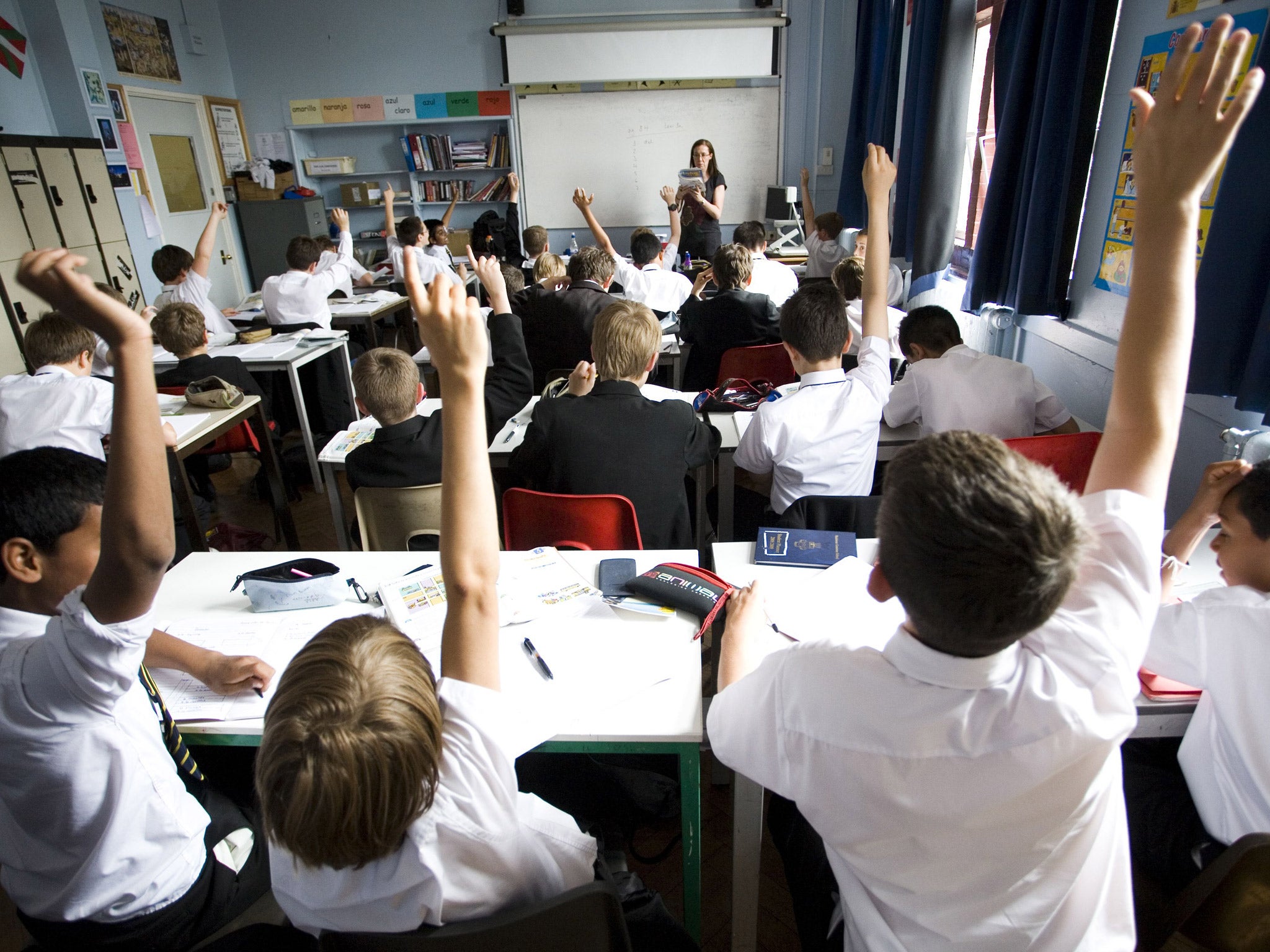Grammar schools 'very socially selective', warns charity cited by Education Secretary to justify them
The Sutton Trust was cited by Justine Greening to defend the case for selective grammar schools

The charity relied on by the Education Secretary to justify grammar schools has dealt a blow to her case – branding them “very socially selective”.
Justine Greening faced questioning in Parliament on Thursday morning over leaks suggesting the Government was planning to reintroduce the controversial selective grammars.
Though Ms Greening did not confirm or announce the policy, she mounted a defence of selective grammars – citing research by the Sutton Trust, a charity that seeks to improve social mobility through education.
The Trust has however produced more recent research suggesting that only a tiny proportion of pupils helped by grammar schools come from disadvantaged backgrounds.
“The Government is right to recognise that there is a serious issue about the education of highly able young people from low and middle income backgrounds,” a spokesperson for the Trust told the Independent.
“Given that there have been 35,000 extra grammar school places since 1997 – and our evidence suggests the existing 163 grammars are largely very socially selective – we need a proper strategy rather than a piecemeal approach.
“That means a national drive to improve education for the highly able in comprehensives, backed by fairer admissions policies in urban schools. It means boosting access to the existing grammars for less advantaged young people. And it means opening up the 100 leading independent day schools on the basis of ability rather than ability to pay.”

The Education Secretary was asked this morning by Labour MP Ben Bradshaw whether she was aware of “any evidence that shows that a grammar school system improves attainment across the piece, or improves social mobility”. In response she cited research by the Sutton Trust.
“I refer the right hon. Gentleman to research conducted by the Sutton Trust, which clearly identified improved attainment by children on free school meals in grammar schools,” she said.
“The trust also said that its research showed no negative impact on the attainment of children outside the grammar school system.”
That research was conducted in 2008, but further research by the charity has cast selective grammar schools in a far more negative light.
One recent report, Poor Grammar: Entry Into Grammar Schools Disadvantaged Pupils In England, found a clear correlation between higher incomes and likelihood of entry to grammar schools.
Conducted by the Trust with the help of the Institute for Fiscal Studies and Cambridge University, the report warned that just 3 per cent pupils getting into grammar schools were from disadvantaged backgrounds.
Even controlling for attainment, the research showed disadvantaged pupils were less likely to get places at the schools.
Pupils were four times more likely to get into a grammar school if they attended a prep school – attended by six per cent of the population – than if they were on free school meals – which are claimed by 18 per cent of pupils.
At an exchange in the House of Commons Labour’s shadow education secretary Anglea Rayner accused Justine Greening of “a dangerous misunderstanding of the real issues facing our schools”.
Further research by the Sutton Trust published today found that just under a fifth of the entire private tuition market is preparation for grammar school entry exams.
Ms Greening said: “There are too many parts of our country where, in spite of all the reforms we have made and the improvements in attainment that we have seen, there are still children who cannot get good enough access to a good school.
“We also want to build capacity by having some of our best schools work with other schools in the system to help collectively to raise attainment and standards as a whole. We want to see all parts of our education system, not just the school system but universities as well, playing a stronger, better role.”
Join our commenting forum
Join thought-provoking conversations, follow other Independent readers and see their replies
Comments